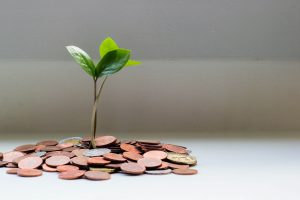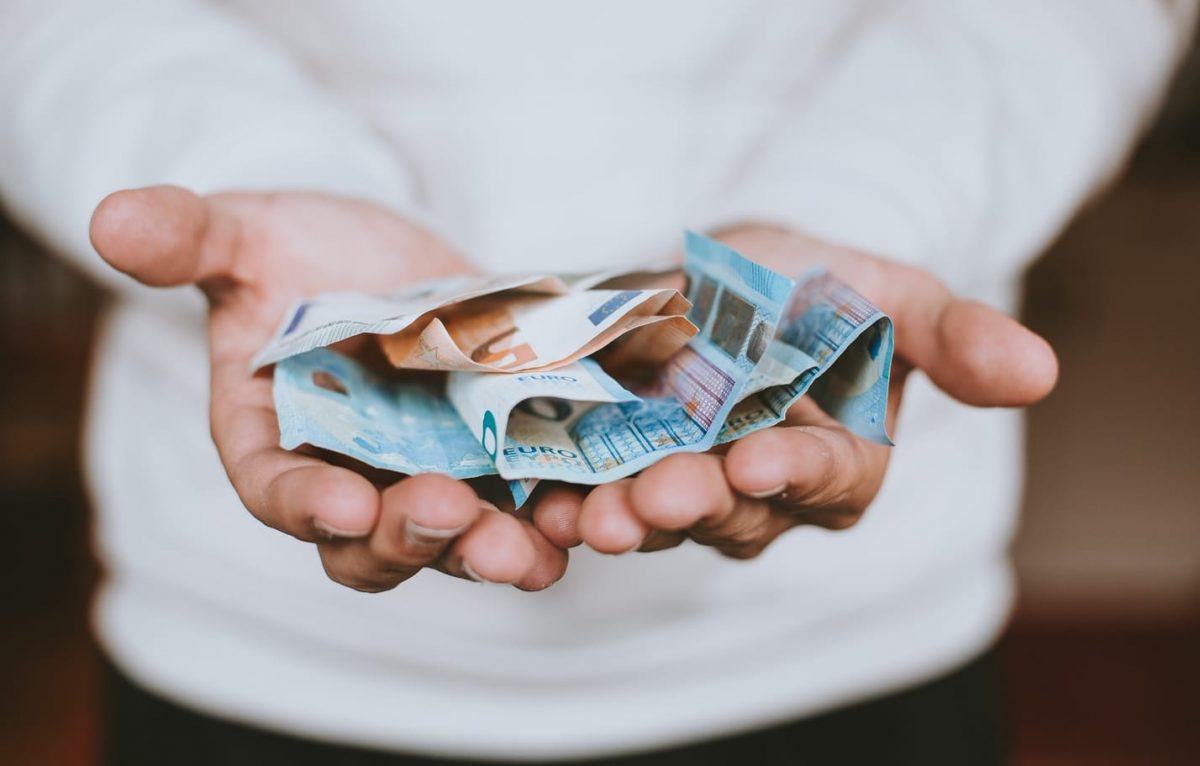For most individuals in active addiction, the ability to adequately manage their finances is an almost impossible task. They are no strangers to financial insecurity.
Addiction is a progressive illness: it eventually takes priority over every other aspect of life, including finances. As addiction wreaks havoc and substances become the top priority, budgets are overstretched, debts grow, financial commitments are missed, and promises are broken.
The getting and finding ways to consume more overpowers every other rational thought of the addicted individual. In the deepest lows of addiction, even food, shelter and warmth are compromised as the individual strives to find and fund his or her daily fix.

Money becomes a means to an end. Work becomes a ritual that is performed to keep the addiction going. Some build debt before payday is due, with credit stretched as far as it can go. For the addict, each pay-check comes with the promise of more substances.
The addict tries all sorts of strategies to manage his or her addiction. They might change the dealer and source of their substances. Others will buy in bulk to get a lower price. Addicts will tread a fine line with promises of payments to ensure their avenues for substance misuse are maintained. They tell lies, steal money, cheat and deceive friends and loved ones to fuel their spiralling sickness. Such strategies rarely work, as the addict continues to consume and spend in larger quantities.
Fear of Economic Insecurity Will Leave Us
Those who participate in 12 step groups such as AA (Alcoholics Anonymous) or NA (Narcotics Anonymous) might be familiar with the 12 steps and traditions of recovery. However, are you aware of the 12 Promises of Recovery?
They are introduced in the AA ‘Big Book’ as an effective form of amends to oneself.
One of the promises is “Fear of individuals and economic insecurity will leave us.” What exactly does that mean?
Does entering recovery and finding sobriety mean that all our financial woes will be fixed? Does being sober mean, we will never worry about money again?
Recovery and Financial Security
It not unusual to enter recovery after losing a lot along the way. For many people, early recovery is a mixture of excitement and fear. It is the time the person learns how to change his or her thinking and regain control of their lives.
 While focusing on all the immediate inner work, it can be easy to overlook the small day-to-day obligations required for financial responsibility and independence. Skills like budgeting and saving seem a simple task, but to the addict, it is often something that is a struggle.
While focusing on all the immediate inner work, it can be easy to overlook the small day-to-day obligations required for financial responsibility and independence. Skills like budgeting and saving seem a simple task, but to the addict, it is often something that is a struggle.
‘Sobering up’ opens means getting vulnerable to emotions. In the days of active addiction, all feelings were managed and suppressed through substance misuse. However, now in recovery, some emotions are raw and will lead to the individual looking for ways to avoid uncomfortable emotions.
Money can still become a means to change the way the individual feels. In early recovery, the addict often looks outside of themselves for a material solution to an internal and spiritual dilemma.
Budgeting is a skill that is learnt along the way. As the individual looks inward and works through fears that relate to some feelings, the need to fix externally will lessen. Subsequently, the ability to manage finances will improve.
Understanding the Promise of ‘Financial Security’
Simply sobering up will not make all your money worries disappear. You won’t automatically have a full bank account and be able to save money for a rainy day easily. There is a lot to learn. Living with control of finances takes time, however, like much in recovery. If you are willing and able to follow some direction, it’s possible.
 Employment opportunities will arise; you might retrain in new skills, and volunteering might present new opportunities. You will notice that without drugs and alcohol, you’ll have money to enjoy new and healthy pleasures and hobbies. Once you have completed the inner work on yourself, you will notice that you can learn to save, and money goes further.
Employment opportunities will arise; you might retrain in new skills, and volunteering might present new opportunities. You will notice that without drugs and alcohol, you’ll have money to enjoy new and healthy pleasures and hobbies. Once you have completed the inner work on yourself, you will notice that you can learn to save, and money goes further.
Through your recovery journey, you will notice that gratitude and serenity go hand in hand. The more you work on your internal self, the more you will feel calm in the world and be able to sense gratitude for the simple things life has to offer.
You’ll find a new appreciation for time with recovery peers, family and colleagues. You’ll learn that all you need in life is, food in your belly, a roof over your head and connection to the sense of something bigger than you in the world.
 In time the constant pursuit for lavish material goods will diminish as you heal and find the ability to manage feelings and emotions appropriately.
In time the constant pursuit for lavish material goods will diminish as you heal and find the ability to manage feelings and emotions appropriately.
You will realise that finances and savings, although comforting, do not automatically mean happiness.
Even in a time of financial crises like we are facing today as a result of the current pandemic. You will find you can stay calm and can remind yourself, that as long as you have something to eat, somewhere to sleep and someone to talk to, it will all be okay.
The True Sources of Insecurity
In recovery and embarking on an inward journey of self-discovery, you will discover that our fears are usually linked to insecurity. You will find there are three main sources of insecurity:
- insecurity based on rejection or failure
- insecurity based on a lack of self-confidence
- insecurity based on a sense of perfectionism.
With the help of a 12-step programme, sponsor or professional therapist, you have the opportunity to explore your attachment to fears. You will be guided through working on yourself – your beliefs and perception of self.
Over time and with support, many insecurities are lifted, including the uncertainty of financial instability.
The gifts and promises recovery can facilitate will out-stand you.
Some Handy Tips for Managing Finances
- Separate wants from needs. Inactive addiction, your brain tends to pursue instant gratification. This mindset can persist in early recovery unless you decide to push back. Instead of swiping your card for every minor desire, take a beat to reflect on whether you really need to spend that money.
- Avoid credit or debit cards. Becoming fully self-supporting might be the end aim, but until then it might be best to minimise access to credit cards. Withdrawing cash from the bank when you need to helps discourage random, impulsive spending.
- Create Lists for when a shopping trip. Planning your trips to the shops can help minimise the chance of impulsive purchases. Knowing what you need and where you are going to get it, can help maintain your focus and stop you from picking up items you don’t need.
- Seek affordable alternatives. Sometimes, there are more economical ways to accomplish your goals. Such as clip coupons, hunt for bargains or thinking of other options for outings. If you want to have dinner with a friend, cook together instead of going to an expensive restaurant.
- Set savings goals. If you want to make a larger purchase, or go on a vacation, start setting aside money for those particular goals. For example, you might have a holiday fund jar for your loose change.
Serenity replaces financial insecurity as you continue on your path of sobriety!
If you’d like to speak to one of our qualified counsellors, you can send a message online, or call us today on 0800 1404044



